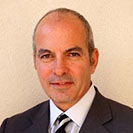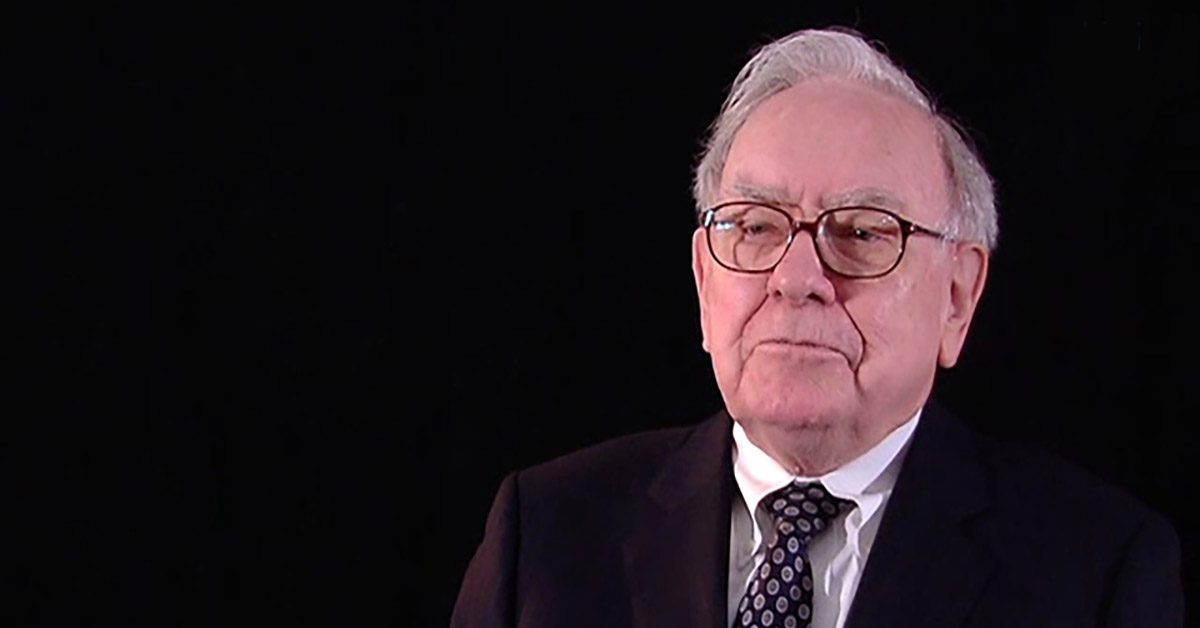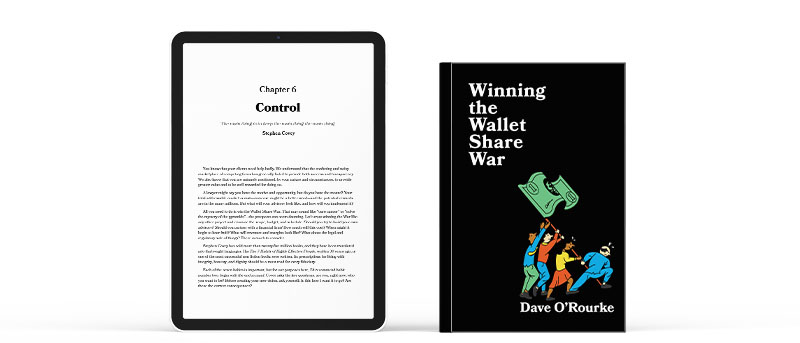The Foundation for a Remarkable—and Remarkably Valuable—Business for the Certified Public Accountant, Enrolled Agent and Other Tax Professionals
There are many common misconceptions about Stoics. Many believe Stoics to be like Mr. Spock of Star Trek, a person purely dedicated to logic and therefore unable to experience the joys of life. But that is hardly the case; Stoicism evolved from a search for a way to live a happy life.
Founded circa 300 BCE by Xeno of Cyprus, Stoicism believes that the path to a happier life lies in striving to gain greater self-control, clearing out destructive emotions and thereby making better choices. Already we can see that Stoicism has much to offer investors.
The early Stoics developed five principles for a better life: 1, manage your expectations, 2, be realistic about what you can change, 3, strive for equanimity, 4, recognize your emotions and, 5, live in harmony with nature. If it reads like a recipe for investing success, and for managing client relationships, we suggest that it is one—an ideal one.
There is more: Stoics believe in four core virtues: Wisdom, Courage, Justice, and Temperance. Each has a role in managing clients and in building a valuable business. For the entrepreneurial Certified Public Accountant or Enrolled Agent, there may be no more valuable guiding principles when deciding how to add asset protection and wealth management services to their existing compliance and planning business.
The Four Virtues at Work for the Tax Pro and Their Clients
Wisdom—Advantage Goes to the Tax Pro By Nature
Wisdom, to the Stoics, was essentially the ability to recognize that which is good, evil or neither one. For the tax pro, this is no trivial thing. Your clients depend upon you to make recommendations that can have a massive impact on their financial well-being. 75% of CPAs kick that can down the road to other advisors, brokers, bankers and insurance people, feeling that it’s beyond the scope of their value delivery model.
How wise is that? Is it the best thing for the client? Would an entirely insurance-based solution be best? Or the entirely closed system approach favored by broker-dealers, whose mantra is “suitability” and not “best interests”? When you refer out to a single-threaded professional, your clients aren’t likely to get a true fiduciary solution — the sort of thing you know you’d prefer for them if you had the option.
If you really had the option, you’d get things in the right order. Your tax planning strategies would guide investment policy, not react to it retroactively. The fundamental practice of single- and multi-family offices, “taxes first, then math” exists for the simple reason that it is best for the client. “Math” refers to a meritocratic, objective, market-wide competition to satisfy the client’s requirements in the most elegant way possible.
And this: if you were wise, you might also adopt the Stoic’s principle #2: be realistic about what you can change. You’d realize that any strategy that attempts to predict or control the unpredictable and uncontrollable — e.g. the market, volatility, interest rates, inflation, global conflict, climate change, legislation, etc. — would be based on luck that the speculation — the guess — will be right.
Family offices, institutions, and pension plans have strict fiduciary responsibilities that prevent them from speculating. Instead, they focus on controlling only those things that can be controlled: security selection, costs, tax efficiency, and risk exposure. All of those things are solidly in the dominion of the tax professional.
We doubt that there were any CPAs in ancient Rome, but it’s almost as if the Stoics were creating a philosophy specifically in support of the accountant as advisor.
Courage—CPAs Can Stand Up For Their Principles Without Going it Alone
Courage is something highly praised by the Stoics. Whatever else may be said about them, they had guts. The great Stoic (and former slave), Epictetus, said that the two key words that relate to courage were “persist” and “resist.” Epictetus meant the willingness to go it alone and stand up for your principles, even in the face of death.
While we can agree that death is rarely on the line for the CPA or EA, but for their client, the stakes can be enormously high. The corrosive effects of high (often hidden) costs, tax inefficiencies (a great irony), poor diversification, and misaligned risk exposure can cost the client most of their gross return, leaving a net return barely above inflation. And that can have life-changing consequences for the client in retirement.
The CPA or Enrolled Agent who has the courage to say “no” to the salespeople and to provide guidance and wisdom to their client can be a real hero. That hero does have some hurdles to overcome, of course: they need to have a better value proposition. And that value prop needs a solutions development, delivery, and service infrastructure.
That infrastructure is exactly what Family Offices provide for their clients. And this is crucial: successfully guiding the client requires the wisdom of a seasoned tax professional. This means one more element of courage: the fortitude to work through the confusing and noisy marketplace to find a multi-family office partner who can deliver the true fiduciary standard in an efficient and transparent way, leaving the tax pro to handle the tax strategy and relationship management.
Justice—Tax Pro: Your Clients Are Your Fellow Man, and They Need Your Help Badly
Justice is often overlooked in a caveat emptor world. The Stoic was not concerned with justice in the context of legal matters, but in a more grounded and human context: do no harm. Don’t covet the possessions of another. Help your fellow man. Be steadfast, and honor the truth.
Here we see more relevance for the advisor than the client. The client is unlikely to harm their advisor; that’s not the direction things naturally follow. And the massive transfer of wealth from investors (or customers) to the financial services industry has built the concrete canyons of our major cities, while providing little in terms of fair value in exchange.
In his or her compliance business, the tax pro fairly epitomizes Justice. It’s axiomatic that the tax pro is the most trusted among all financial professionals, and rightly so: they are synonymous with accuracy, reliability, timeliness and truth. Most Americans don’t even review their tax returns, taking its accuracy on faith for the simple reason that CPA or EA prepared it, signed it, and vouched for it.
The trick for the entrepreneurial tax pro who wants to do more for their clients — and in so doing do more for themselves — is to apply the Stoical virtue of Justice in all the roles they play…accountant, tax strategist, advisor, counselor, director, keeper of integrity. And here again, we see the virtue of the Family Office, which operates entirely free from conflict, entirely dedicated to the best outcome for the families it serves, and is entirely transparent.
Temperance—How the Tax Pro as Family Office Director Can Align Client Expectations with Lived Reality
Temperance is essentially “Wisdom in action” for the Stoic. In the world of wealth management, few organizations or models more effectively embody Temperance than the Family Office, and one fact demonstrates this above all: the target annual expected return for most FO clients is in the 6% to 7% range.
Using round numbers and long-term averages, we can see the wisdom of that goal. If stocks and PE return 10%, and hedge funds, bonds and real estate about 5%, a 50/50 blended portfolio of risk-loving and risk-averse portfolio should yield 7.5%. Factoring the acumen of the tax pro, that number can be managed to reduce the tax and cost impact and voilà: lived experience matches expectations—the key to happy client relationships
Would a 6% or 7% return satisfy your clients, the “mass affluent” or “millionaire next door”? For many, it will take some education to help them understand the real world of wealth management, and to overcome the unrealistic expectations set by asset managers and salespeople. But we ask: who better to provide that education than the most trusted player on the field, the tax professional?
The wise, courageous, just, and temperate professional understands the difference between investing and speculating, that there is no reliable get-rich-quick scheme or arbitrage available in this world, that wealth accumulation in a diversified portfolio demands patience and discipline above all.
In a very practical application of Stoical principles, the tax pro must reject sales, selling and salespersonship, and that means create marketing and branding that seeks to inform and educate. Most people eventually discover that salespeople have hidden agendas and seek an outcome that is good for them, independently of the outcome for their customer.
The tax pro who desires sustainable success, who truly cares about the well-being of their clients, and who wants to maintain that valuable, most-trusted status, would do well do be like Xeno and Epictetus: by doing no harm, they could do great good.
The Tax Pro as Family Office Director: Better Decision Makers Making Better Decisions for Their Client Families
For the entrepreneurial tax pro who values their independence and prefers to own their own firm, the idea of owning a Family Office may seem fantastical. Think of the infrastructure and organizational challenges. Then consider the legal and compliance hurdles. Finally, how would they approach the communications and branding strategy necessary to making the change?
For these reasons, 75% of CPAs have stayed in their tax compliance lanes and made no moves into the broader financial services space. Now, however, CPAs have another and far more attractive option to starting their own firm: partnering with a multi-family office charter provider.
A Turnkey Multi-Family Office Charter could provide a “Goldilocks” solution for the tax pro: they remain in their position as client-facing tax expert, and bring their gimlet-eyed discipline to the process of decision-making, and their charter partner does everything else. They provide the technology, business development, operations, service and marketing support services and share revenues with the tax pro.
Under this model, the CPA’s business benefits from new and diversified revenue streams. They verticalize their relationships with the clients they choose to work with, and the valuation of their firm reflects the durability not only of the revenues but the expected growth of assets under management over time.
Working with a Turnkey Multi-Family Office Charter could be the holy grail for the tax pro. A smaller but more significant and profitable client base, relief from the intense pressures of tax season, and an engine for valuation growth. Best of all, perhaps, is the opportunity to help their clients benefit from the model enjoyed by America’s wealthiest families.















